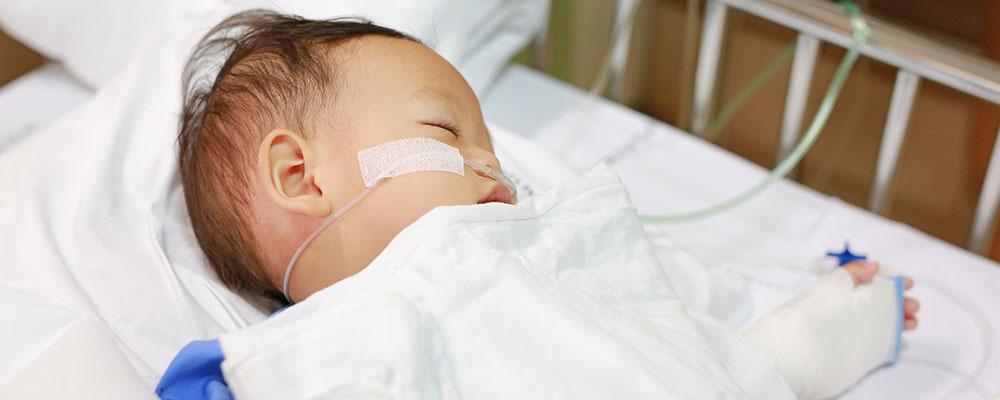Chicago, IL 60601
FREE CONSULTATIONS 312-462-4200
TOLL FREE 833-462-4200
Fetal Stroke

Addressing the Effects of Perinatal or Neonatal Strokes - Illinois Birth Injury Attorney
A stroke occurs when blood flow is interrupted to part of the brain, which can cause permanent brain damage. Infants are particularly susceptible to this type of brain injury, and during and after birth, medical personnel should recognize the signs of a stroke and take immediate steps to provide the necessary treatment.
Causes of Fetal and Neonatal Stroke
A stroke that occurs either before or soon after a child's birth is known as a perinatal stroke. Fetal or intrauterine strokes can occur prior to birth, while neonatal strokes can occur up to 28 days after birth. A child may suffer a stroke for a variety of reasons, including:
- Blood clots - Newborn infants have a high concentration of red blood cells in their body to ensure that they receive enough oxygen while in the womb. This puts them at higher risk of blood clots, which may cut off the supply of oxygen to the brain.
- Head trauma - Complications during birth can result in injuries such as skull fractures, which may lead to hemorrhaging in the brain that damages blood vessels and restricts blood flow.
- Infections - If a child contracts sepsis, meningitis, or other types of infections, this may cause blood clotting.
- Asphyxia - A stroke may occur if an infant's oxygen supply is cut off due to issues with the placenta or umbilical cord or because of trauma during birth.
Effects of Fetal Stroke
The damage to a child's brain that results from a stroke is often permanent and irreversible. This can have a lifelong impact on a child's health and well-being, and it may lead to conditions such as:
- Cerebral Palsy (CP)
- Hypoxic Ischemic Encephalopathy (HIE)
- Epilepsy and seizures
- Developmental disabilities
- Cognitive impairment
- Speech and language disorders
Signs and Symptoms
While a neonatal stroke is not always immediately recognized, there are a variety of symptoms that may indicate that a child has suffered this type of injury, including:
- Seizures, which may take the form of twitching of the arms, legs, or face
- Paralysis or weakness on one side of the body
- Difficulty breathing or feeding
- Lethargy
- Developmental delays
- Favoring of one hand over the other before the child is 18 months old
Treatments
Proper and timely treatment of fetal or neonatal stroke is crucial, and if any risk factors for stroke exist, doctors should take steps to diagnose this condition and provide the proper treatment. Diagnosis may be done through brain imaging such as an MRI or CT scan, blood tests, EEG monitoring, or a lumbar puncture to test spinal fluid. Treatments for a perinatal stroke may include:
- Administering blood-thinning medications to prevent blood clots or anticonvulsant drugs to address seizures
- Hypothermia treatment in which the child's brain is cooled to prevent the spread of damaged brain cells
- Surgery to prevent blood from pooling around the brain
- Administering oxygen and hydrating IV fluids
- Blood transfusions
Addressing the Impact of Fetal Stroke
The brain damage resulting from a stroke can affect your child for the rest of their life. If this injury leads to a condition such as Cerebral Palsy, your child may require a wide variety of ongoing treatments and therapies, and the costs associated can have a significant impact on your family's financial security. At the Birth Injury Law Alliance, we can help you understand your options for receiving assistance, including determining whether you are able to pursue compensation for any medical negligence which led to your child's injury. Contact us today at 312-462-4200 to learn more. We provide complimentary consultations and case evaluations.





